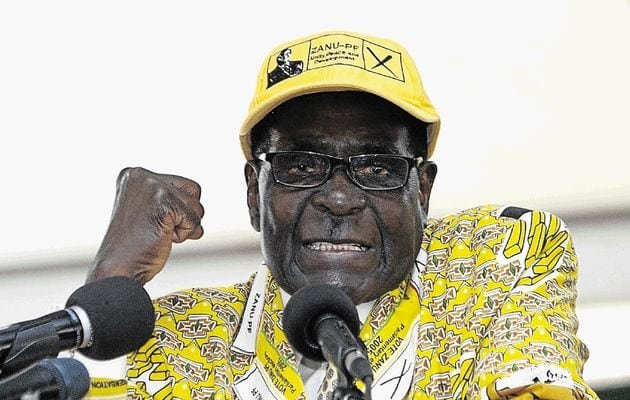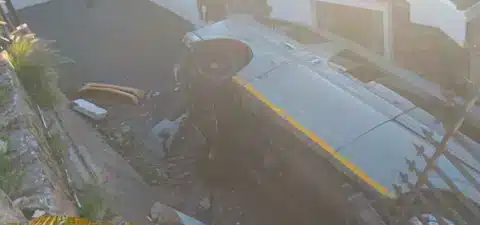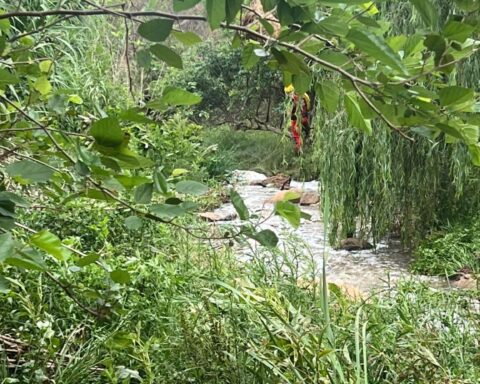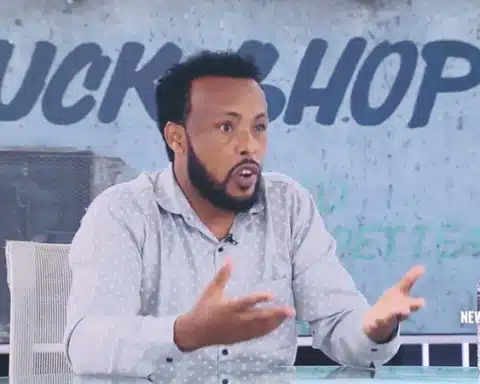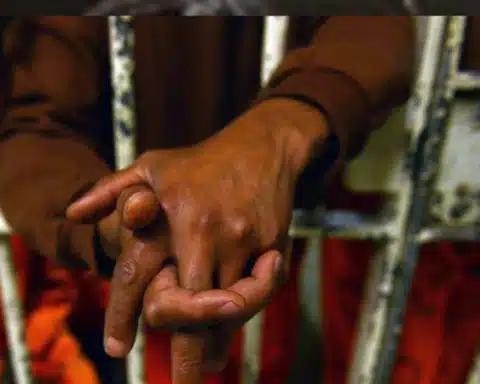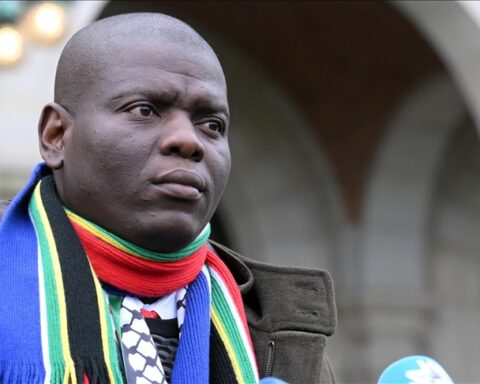By Gift Phiri
Zimbabweans are more afraid today than they have been in a long time, with the majority unable to exercise their free will in elections because they are worried about being victims of political violence, the Catholic Commission of Justice and Peace (CCJP) has said.
Fear pervades Zimbabweans’ lives and politics, the CCJP said in an annexure of a damning report on the 2013 harmonised elections tabled in Parliament.
The dossier, tucked inside a Zimbabwe Electoral Commission (Zec) report, notes that President Robert Mugabe’s Zanu PF is a master of fear, invoking it in concrete and abstract ways since the 2008 elections.
Contacted for comment yesterday, Zanu PF spokesperson Simon Khaya-Moyo said he had not seen the report, but denied that his party was harvesting fear planted in the 2008 vote.
“We are not a party of coercion; people come to the party voluntarily. Anyone intimidated must report to the police, we are a democratic party,” Khaya Moyo told the Daily News yesterday.
“We can’t talk about this today. Why didn’t they report to the police?” he added.
CCJP said more than most political parties, Zanu PF grasps and channels the fear coursing through the electorate. And if Mugabe still stands a chance to win in next year’s harmonised elections, the Catholic group said fear could be the key.
CCJP chairperson Bishop Alex Muchabaiwa said: “without serious national healing and reconciliation process, most people will carry the same fear and trauma up to 2018 elections where they will just vote, not for the best leaders, but to save themselves.
“There is need to begin to pray and fast in preparation for 2018 elections,” the right reverend Muchabaiwa said.
The CCJP said the 2008 violence that killed 200 people – “was a political investment of the individuals, groups and institutions that perpetrated it”.
The run-down districts of the capital and rural areas were at the centre of several weeks of post-election violence in 2008, in which 200 people linked to Morgan Tsvangirai’s MDC were killed.
“While there was little open violence after 2008, intimidation, threats and coercion continue, with war veterans and some traditional leaders as perpetrators.
“As in 2008, this charged atmosphere of intimidation was fuelled by the drive to influence voters political choice,” the CCJP said in its executive summary.
The CCJP — that has established Diocesan Commissions that have created community-based structures countrywide that monitor justice and peace — said if fear is strong enough, it can accomplish something exceedingly rare: It can override people’s pre-existing partisan commitments. And Zanu PF has been harvesting the 2008 fear.
CCJP said Zanu PF’s success in the 2013 elections can be largely attributed to Zimbabweans’ increased fear of violence.
And their concern about a repeat of the 2008 post-election terror was a good predictor of their voting habits, even apart from partisanship, as the country heads to the 2018 vote.
The government insists it can deliver a smooth poll and avoid a repeat of the bloodshed after the 2008 presidential election.
The opposition say the vote cannot be credible unless the Zec is reformed and its commissioners and secretariat changed.
In the last presidential election in 2013, the result was contested but voting was calm.
But the forthcoming mid-2018 poll, when Zimbabweans will elect the president, Parliament and councillors, poses a bigger challenge as this time, trust in institutions overseeing the vote has plunged even though Zec is ushering in a bio-metric voter register and the opposition is mooting fielding a single candidate.
CCJP brushed aside concerns about the voter register being flawed, saying “no voters’ roll is perfect even in mature democracies,” concluding that Zanu PF was in fact successfully using the power of fear in politics, especially in rural areas, to retain power.
CCJP said villagers have been forced to pretend illiteracy so political agents or activists could assist them to vote.
“Those who were believed to have voted for a political party of their own choice in 2008 were ‘assisted’ to vote by political party activists or agents. This was common in the dioceses of Gokwe, Masvingo, Gweru and the archdiocese of Harare, especially in Mutoko,” CCJP told Parliament.
Traditional leaders assembled people on their homesteads on voting day and marched them to designated polling stations to vote for Zanu PF, the report said.
Some traditional leaders deprived other community members of food or any other humanitarian aid because they support certain political parties. Villagers are threatened with eviction if they do not support Zanu PF.
And Zanu PF officials and traditional leaders have a habit of promising more violence than that experienced in 2008, or even a “liberation war” if Zanu PF loses elections.
CCJP said even after the 2013 elections, there are some who continued with the intimidation, targeting those who might have been strong enough to make their own independent political choices.
“It might not be far from the truth if we say some people voted in July 213 elections to save their lives, limbs and property. They wanted to avoid a repeat of 2008,” the CCJP told Parliament
It said fear is present constantly in Zimbabwean politics.
MDC spokesperson , Obert Gutu, said the CCJP report was “very much poignant and indeed, thoroughly on point.”
“It is a fact that the Zanu PF regime has been harvesting from fear arising out of the brutal and terrorist crackdown against opposition political party activists and supporters in the June 2008 presidential election run-off campaign,” Gutu told the Daily News.
“As the MDC, we have consistently argued that the people of Zimbabwe, particularly in rural areas, are routinely subjected to physical beatings and torture including emotional and psychological violence by Zanu PF thugs; particularly during election periods.
“As a party, we have tried and we are still trying our level best to galvanise our supporters not to easily succumb to threats of violence and intimidation by Zanu PF thugs and hoodlums.
Zimbabweans are generally a very brave and resilient people but then, most if not all perpetrators of politically motivated violence have always been protected by the establishment. These political hoodlums and thugs are roaming the streets scot-free.
“They have not been arrested nor in any way, brought to book by the relevant law enforcement agencies. These thugs are virtually untouchable, they are a law unto themselves.”
Gutu said the MDC will continue to engage the electorate and explain to them that “if we turn out in our millions to register to vote and also to cast our votes on polling day, we can successfully exorcise the ghost of rigging as well as the ghost of violence and intimidation.”
“We should be able to win in spite of rigged elections (wire). The wire trajectory is the new normal in our political discourse. Zanu PF is beyond redemption.
“The Zanu PF regime will never, ever reform itself out of power. As such, we have to be versatile and devise strategies that will ensure that we will win next year’s elections even if they are rigged,” Gutu said
